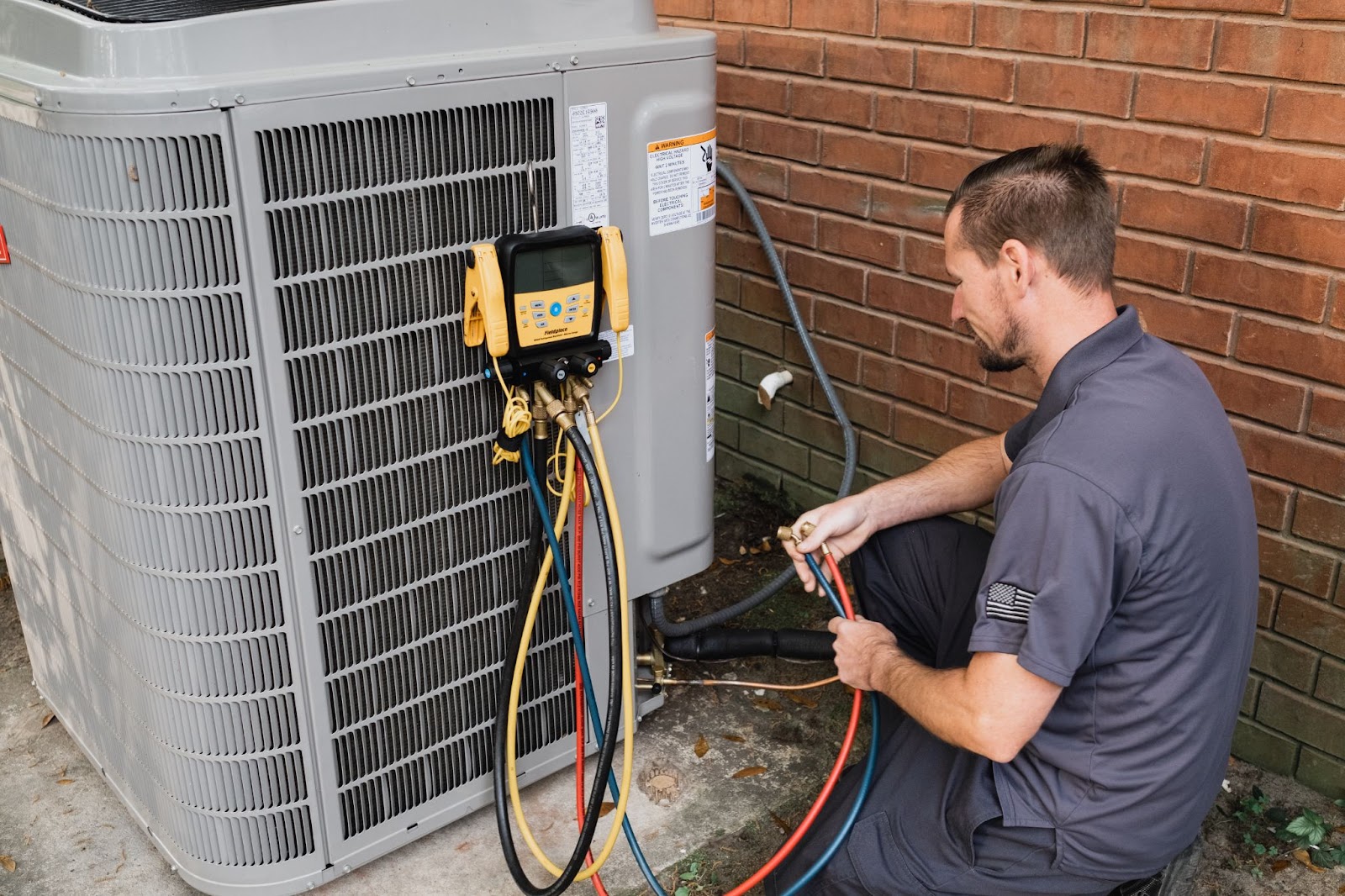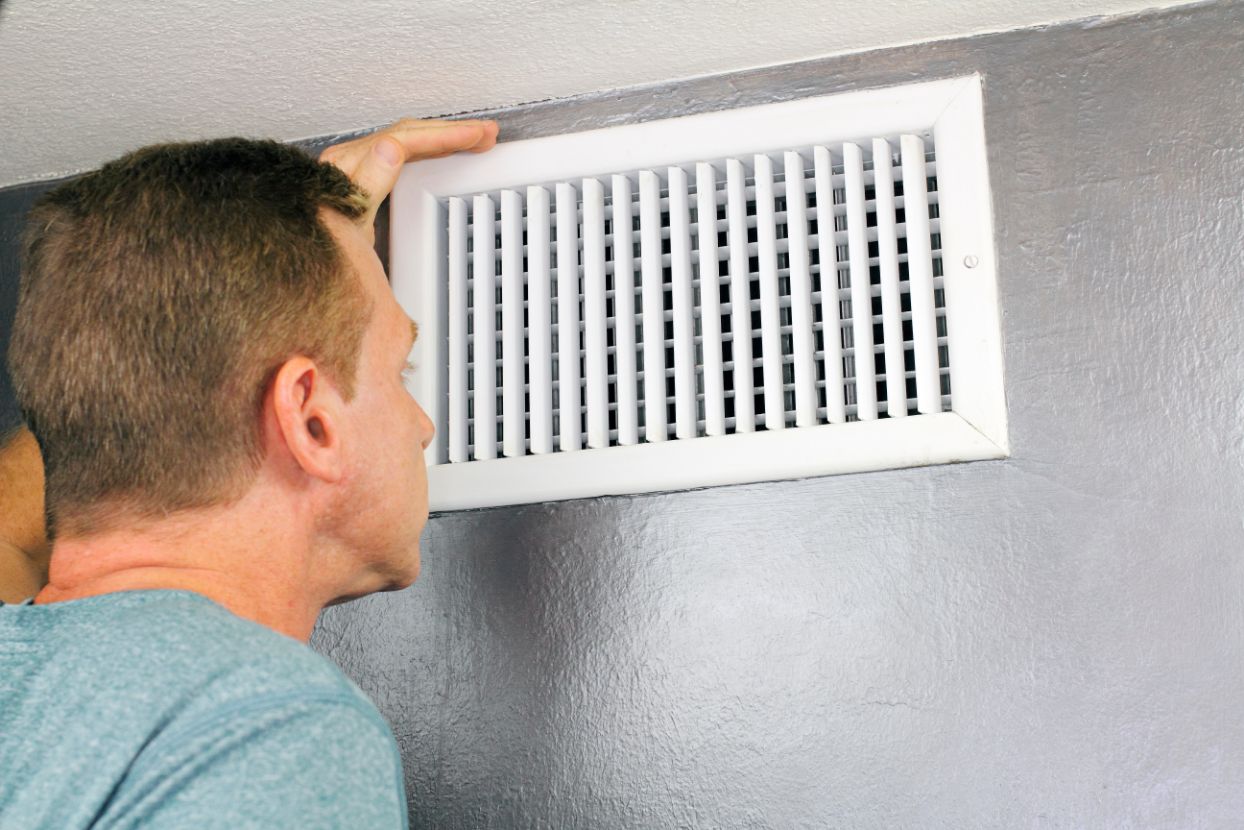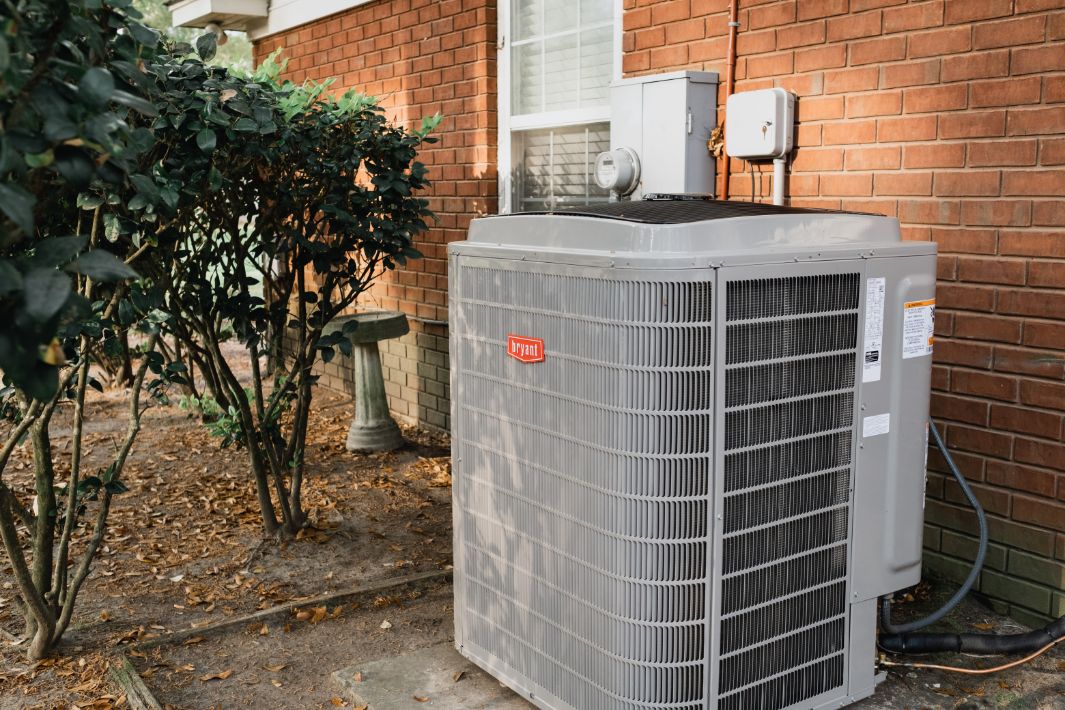Pre-Flood Preparations:
The best time to protect your HVAC system from flooding is before the waters start rising. Here’s what you can do:
- Assess Your HVAC System: First, take a moment to familiarize yourself with your HVAC setup. Knowing the location of your outdoor unit and its potential vulnerabilities is key to protecting it from flood damage.
- Elevate and Secure: If your HVAC unit is installed on the ground, consider elevating it to reduce the risk of flood damage. This step is especially important for homes in low-lying areas around Savannah. Additionally, securing the unit with brackets or straps can prevent it from being displaced by floodwaters. The experts at Indoor Climate can help with this process. You should always call a professional before tackling this yourself.
- Shut Down Power: Shutting off the power to your HVAC system is crucial to prevent electrical hazards. This simple step can help you avoid more significant issues later on.
- Cover and Protect: Once you’ve cut the power, use waterproof covers or heavy-duty tarps to shield your outdoor unit from direct water exposure. This can help minimize damage and make post-flood recovery easier. Be sure to remove any covers before you safely turn the power back on to a unit.
- Document: Take photos of your unit and surrounding areas for insurance purposes.
During the Flood: Prioritize Safety
When floodwaters arrive, safety is your top priority. Here’s what you should keep in mind:
- Avoid the Area: Stay clear of the flooded HVAC equipment to prevent injury or electrocution.
- Monitor Water Levels: Keep a close eye on the rising water, but do not take unnecessary risks.
- Document the Damage: If it’s safe, take photos or videos of your HVAC unit. This documentation can be crucial for insurance claims later on.
Post-Flood Actions: Assessing and Repairing Your HVAC System
Once the water recedes, it’s time to evaluate the damage and get your HVAC system back up and running. This is where our 24/7 emergency services come in handy.
- Wait for Water to Recede: Patience is key. Wait until the area is completely safe before inspecting your HVAC unit.
- Professional Inspection: Before turning your system back on, contact Indoor Climate Experts for a thorough inspection. We’ll check for water damage, electrical issues, and any debris that might have entered the unit.
- Cleaning and Repair: Post-flood, your HVAC system may need extensive cleaning and repairs. This might include drying out components, checking for electrical faults, and removing any debris. We recommend leaving these tasks to professionals to avoid further damage.
- Replacement Considerations: In some cases, flood damage might be severe enough to require a complete replacement of your HVAC system. Our experts can guide you through this process, helping you choose a flood-resistant unit for the future.
Preventative Measures for Future Floods
After experiencing a flood, it’s wise to take steps to protect your HVAC system from future incidents.
- Regular Maintenance: Schedule regular maintenance checks with Indoor Climate Experts to identify and address vulnerabilities before the next flood hits. Consistent upkeep can make a big difference in your system’s resilience.
- Flood-Proofing Upgrades: Consider investing in flood-proofing upgrades. This could include elevating your HVAC unit, installing water barriers, or choosing flood-resistant models designed to withstand harsh conditions.
Trust The Experts
As a local provider for Pooler, Savannah, and surrounding areas, we understand the unique challenges residents face when it comes to severe weather and flooding. With a little preparation and the support of our team, you can ensure your HVAC system is ready to face any challenge. We are proud to serve our local community, offering 24/7 emergency services to keep your home safe and comfortable, no matter the weather. Contact Indoor Climate Experts to see how we can help you flood-proof your HVAC system.


